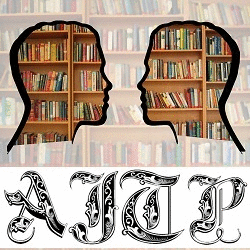Towards the Sustainable Development by 2020: Malaysia Perspective on Economic Growth and Wellbeing
DOI:
https://doi.org/10.18034/ajtp.v4i1.414Keywords:
Malaysia GDP, Wellbeing, Sustainability, MWI, MWR, 10MP, 11MPAbstract
This paper has prioritizes on the impact of national growth on wellbeing. This is a review paper that contributes to define the 14 components of Malaysia Wellbeing Index (MWI, 2012) and its relation to country’s economic growth (the Gross Domestic Products (GSP)). The aim is to introduce and analyze the 10th Malaysia Plan (10MP), the 11th Malaysia plan Strategic Thrusts, achievement from macroeconomic indicators, average monthly incomes, Malaysia Wellbeing Index, and the sustainability by 2020. The findings are of a great value to both theory and practice and have important implications for the country growth. Furthermore, the paper argues that although MWI projected to increase about 1.7% per year with estimated growth of 5-6% every year from 2016-2020, some challenges are expected to undermine the target set by Economic Planning Unit (EPU) if not given a proper attention. Furthermore, the study shared few wellbeing indicators that used internationally, which only concerned about material aspects and outcomes without looking into the spiritual part of wellbeing. This paper concludes with possibilities for future study to consider the importance of spiritual aspect in the wellbeing index.
Downloads
References
Abu Bakar. A, et al, (2014), Modelling Economic Well-being and Social Well-being for Sustainability: A Theoretical Concept, The 5th Sustainable Future For Human Security (Sustain 2014), www.sciencedirect.com, 2014.
Ahmad, N.F, et.al, (2012), Income Poverty Status and Well-being of the Vulnerable Households in Malaysia: A Comparative Study, University Putra Malaysia, 2012.
Ali. A, (2015), Rancangan Malaysia Kesebelas:, Merancang Untuk Gagal, Majlis Tindakan Ekonomi Melaka, 2015.
Arokiasamy, J.T. (1999). Malaysia’s Ageing Population: Challenges in The New Millenium. Med J Malaysia Vol 54 No 4 Dec. 1999.
BCG, (2012). From Wealth to Well-being Introducing the BCG Sustainable Economic Development Assessment. Retrieved, May 2016 from: http://www.bcgtelaviv.com/documents/file122227.pdf
BCG, (2015). Why Well-being Should Drive Growth Strategies: The 2015 Sustainable Economic Development Assessment, BCG, 2015.
EPU, (2010), 10th Malaysia Plan, www.epu.gov.my, 2010.
EPU, (2012), Malaysia Well-being Report 2013, www.epu.gov.my, 2013.
EPU, (2015), 11th Malaysia Plan, www.epu.gov.my, 2015.
Fagan, P.F, (1996), Why Religion Matters: The Impact of Religious Practice on Social Stability, The Heritage Foundation, 1996.
Hoverd, W.J., & Sibley, C.G. (2013) Religion, deprivation and subjective wellbeing: Testing a religious buffering hypothesis, International Journal of Wellbeing, 3(2), www.internationaljournalofwellbeing.org, 2013.
International Business Review, (2015), International Business Review of National Leaders, Business & Innovations Volume 109, AMG Media Sdn. Bhd., 2015.
KPWKM, (2011), Family Well-being Index Study 2011, www.kpwkm.gov.my, 2011.
Laily, P. (1995). A Consumption Model for Measuring Poverty: An Exploratory Exercise. Social Indicators Research, 35(2), 129-153. http://dx.doi.org/10.1007/BF01079024 DOI: https://doi.org/10.1007/BF01079024
Stiglitz, Joseph (2012). The Price of Inequality. London: Penguin Books.
UNDP, (2014), Human Development Report 2014, UNDP, 2014.
WeD, Wellbeing in Developing Countries (2007). Wellbeing and International Development. Retrieved, May 2016 from: http://www.welldev.org.uk/research/aims.htm
--0--
Downloads
Published
Issue
Section
License
American Journal of Trade and Policy is an Open Access journal. Authors who publish with this journal agree to the following terms:
- Authors retain copyright and grant the journal the right of first publication with the work simultaneously licensed under a CC BY-NC 4.0 International License that allows others to share the work with an acknowledgment of the work's authorship and initial publication in this journal.
- Authors are able to enter into separate, additional contractual arrangements for the non-exclusive distribution of the journal's published version of their work (e.g., post it to an institutional repository or publish it in a book), with an acknowledgment of its initial publication in this journal. We require authors to inform us of any instances of re-publication.














